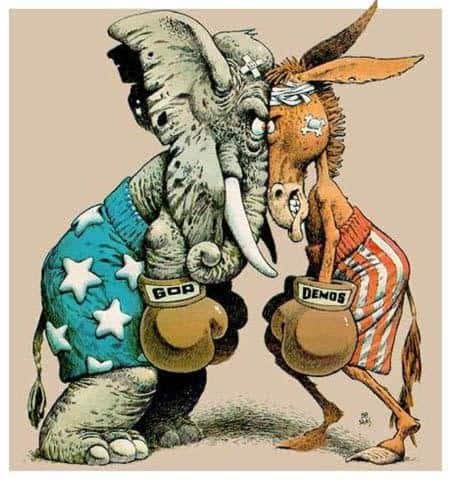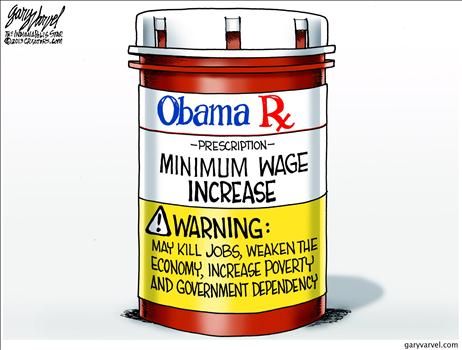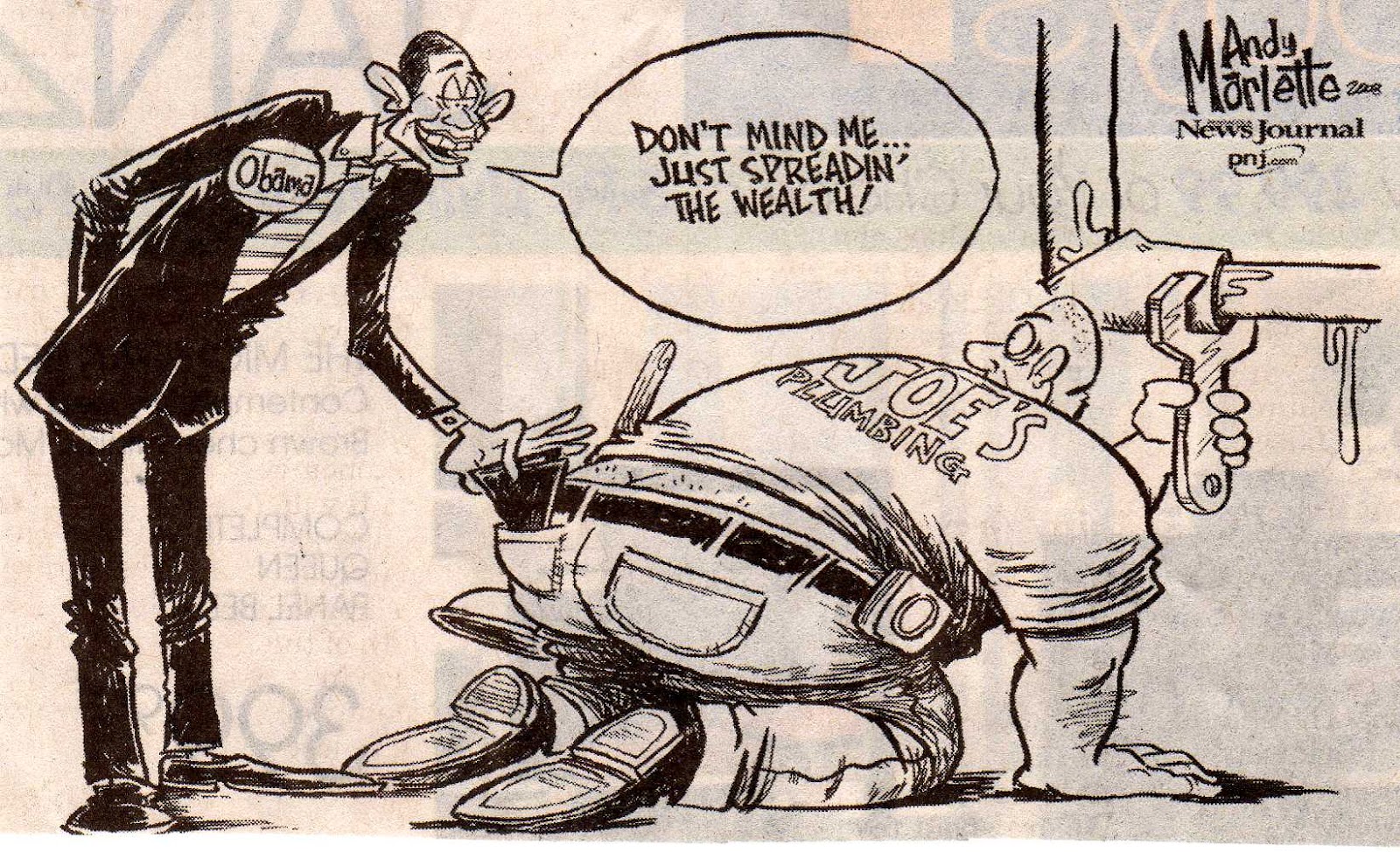This is one of two of the largest divides between the foundations of left/right philosophies.
(Video Description) In our universities, newspapers, and television shows, it is a given that external forces are the cause of crime. If not for poverty, murder and rape would be much lower. If not for racism, America’s inner cities would be far wealthier. So on and so on. At the core of this belief is that people are basically good, and it is society that makes them bad. This notion is simply not true. As Dennis Prager explains in this video, human nature is not basically good. It is not, though, basically bad. People are born more or less neutral. And it is incumbent upon parents, teachers, and yes, society, to turn children into good adults. It doesn’t happen on its own.
While Prager’s and my own theology differs a bit, ultimately the Judeo-Christian understanding of where we start is similar:
(4GospelTruth) ….We will examine several verses that prove that each and every human being born into this world has the same sinful nature, that we all inherited that sinful nature from Adam and Eve. We are also going to discover what it actually means to be a sinner and how God describes our sinfulness. This is VERY important because if we do not understand what God means when He tells us that we are sinners, we will not understand what God means when He tells us that we must repent of our sin.
Psalm 51:5 Behold, I was shapen in iniquity and in sin did my mother conceive me. These are the words of David, who was a man “after God’s own heart”–this means that he was pleasing to God. Yet, David tells us, under the inspiration of the Holy Spirit, that he was shapen (formed in the womb) in iniquity–already IN sin, and that he was a sinner from the moment he was first conceived. Surely, his fallen condition could NOT be worse than our own. Surely it could not be any different from our own. The fact is, the fallen, human nature of David is the same fallen nature of EVERY other fallen human being. This verse tells us WHEN we, as sinners, inherit the sin nature. We see from this verse that we inherit the sin nature from the MOMENT we are first conceived. This means that we never have even a moment of innocence in this life. All of the innocence of man passed from the scene the moment man fell in the garden, and EVERY sinner born into the world subsequent to that fateful event, inherits a fallen, sinful nature, from the moment of his conception. This verse tells us WHEN we inherit the sin nature, and the following Bible verses tell us that all human beings DO inherit the sin nature: “For as by one man’s [Adam’s] disobedience, many were made sinners, so by the obedience of one shall many be made righteous (Romans 5:19). This verse tells us that Adam’s sin was passed on to us. For as in Adam all die, even so in Christ shall all be made alive (I Corinthians 15:22). This verse tells us that our spiritual death, our fallen state of sinfulness, is the RESULT of Adam’s sin. We became sinners THROUGH Adam. …
Read more on this topic at Gospel for Life.
This idea under-girds the philosophy of conservatism. In a section I added to the first chapter of my book, I note the strong underlying commitment in conservative philosophy (dare I say theology) by quoting Thomas Sowell, as found on my QUOTES page:
Christianity is closely tied to the success of capitalism,[1] as it is the only possible ethic behind such an enterprise. How can such a thing be said? The famed economist/sociologist/historian of our day, Thomas Sowell, speaks to this in his book A Conflict of Visions: Ideological Origins of Political Struggles. He whittles down the many economic views into just two categories, the constrained view and the unconstrained view.
The constrained vision is a tragic vision of the human condition. The unconstrained vision is a moral vision of human intentions, which are viewed as ultimately decisive. The unconstrained vision promotes pursuit of the highest ideals and the best solutions. By contrast, the constrained vision sees the best as the enemy of the good— a vain attempt to reach the unattainable being seen as not only futile but often counterproductive, while the same efforts could have produced a more viable and beneficial trade-off. Adam Smith applied this reasoning not only to economics but also to morality and politics: The prudent reformer, according to Smith, will respect “the confirmed habits and prejudices of the people,” and when he cannot establish what is right, “he will not disdain to ameliorate the wrong.” His goal is not to create the ideal but to “establish the best that the people can bear.”[2]
Dr. Sowell goes on to point out that while not “all social thinkers fit this schematic dichotomy…. the conflict of visions is no less real because everyone has not chosen sides or irrevocably committed themselves.” Continuing he points out:
Despite necessary caveats, it remains an important and remarkable phenomenon that how human nature is conceived at the outset is highly correlated with the whole conception of knowledge, morality, power, time, rationality, war, freedom, and law which defines a social vision…. The dichotomy between constrained and unconstrained visions is based on whether or not inherent limitations of man are among the key elements included in the vision.[3]
The contribution of the nature of man by the Judeo-Christian ethic is key in this respect. One can almost say, then, that the Christian worldview demands a particular position to be taken in the socio-economic realm.* You can almost liken the constrained view of man in economics and conservatism as the Calvinist position. Pulitzer prize winning political commentator, Walter Lippmann (1889-1974), makes the above point well:
At the core of every moral code there is a picture of human nature, a map of the universe, and a version of history. To human nature (of the sort conceived), in a universe (of the kind imagined), after a history (so understood), the rules of the code apply.[4]
A free market, then, is typically viewed through the lenses of the Christian worldview with its concrete view of the reality of man balanced with love for your neighbor;
Sean Giordano (AKA. Papa Giorgio), Worldviews: A Click Away from Binary Collisions (Religio-Political Apologetics), found in the introductive chapter, “Technology Junkies”
[1] See for instance: R.H. Tawney, Religion and the Rise of Capitalism (New Brunswick, NJ: Transaction Publishers, 2000 [originally 1926]); Max Weber, The Protestant Ethic and the Spirit of Capitalism (Mineola, NY: Dover Publications, 2003 [originally 1904]); Rodney Stark, The Victory of Reason: How Christianity Led to Freedom, Capitalism, and Western Success (New York, NY: Random House, 2005); Thomas E. Woods, Jr., How the Catholic Church Built Western Civilization (Washington, D.C.: Regnery, 2005).
[2] Thomas Sowell, A Conflict of Visions: Ideological Origins of Political Struggles (New York, NY: basic Books, 2007), 27.
[3] Ibid., 33, 34.
[4] Walter lippmann, Public Opinion (New York, NY: Freee Press, 1965), 80.
The above drives or animates conservatives, and causes us to ask fundamental questions that those on the left may ask in their household — but not in society [writ large]. It is why conservatism, while not the Gospel, will always be closer to reality in it’s cures and responses to man’s societal ills than any other viewpoint:
1) compared to what?
2) at what cost?
3) what hard-evidence do you have?
Politics & The Modern Liberal Contradiction
Arbitrary Values / Relativism
In many cases, “modern liberal” positions are based on the idea of tolerance, the freedom of the individual to do as he or she pleases. This in turn is based on moral relativism, the idea that morality is relative to the individual and the situation (which distinguishes it from “classical liberalism”). Again, what is right or wrong for you may not be right or wrong for others. As a result, you cannot tell others not to have an abortion, not to look at or publish pornography, or not to live by an “alternative lifestyle.” Educational environments must be “value free,” there must be no restrictions on sexual and artistic freedom, and according to some, even activities such as recreational drug use should be decriminalized. Because there are no absolute values, each person must discover his own morality, a process taught in our schools as “values clarification.”
The liberal contradiction lies in the fact that every liberal position claims to be morally correct and objectively true. It is right to allow abortions and wrong to oppose them. Tolerance (in its modern definition) is good, intolerance is bad. Children should be allowed to grow up in a value-free environment; parents should not impose their own values. Modern liberalism takes a moral stance on every issue, but it undermines its own foundation by claiming that there is no moral absolute or guide to adhere to.
To put it into simple terms, yet once more, when a liberal tells you that you cannot tell other people what to do, he or she is contradicting himself by telling you what to do! And there is another side to the liberal contradiction. While many liberal positions are based on tolerance and complete individual freedom, other liberal positions are based on strict authoritarianism.
According to contemporary liberalism, the common good (what Rousseau called “the general will”) necessitates the suppression of individual rights when it comes to “saving” the environment, creating a more “equitable distribution” of wealth, achieving “equality” between races and sexes in all walks of life, and enforcing a strict separation of church and state. Paradoxically, that same “common good” takes a back seat to individual freedoms when it comes to the detrimental effects of: pornography and sexual freedom, reduced police power and criminal punishment, or drug use, or firearm mandates, etc..
Let me hasten to add that I too am for tolerance, equal rights, and ending unjust discrimination. I too am for freedom of speech, artistic freedom, academic freedom, and the separation of church and state. I too am for protecting the environment and helping the underprivileged. But I am for these things because I believe in the tenants of the Judeo-Christian moral tradition, not because I reject these absolutes.
If I were to reject the idea of moral truths, what possible motivation (moral duty) could I have to champion these or any other causes? More important, on what basis could I hope to persuade others of the importance of these causes? It is inconsistent to claim to be concerned about rights while rejecting the moral foundation from which rights are derived.
The rejection of one’s own moral foundation leads one to be not only immoral, but also illogical. It leads to positions that are inconsistent with themselves and each other (self-deleting). It leads to outcomes that directly counter one’s original intention and that threaten one’s own goals. It is unfortunate for the liberal agenda, but the liberal contradiction poses just such a threat. And it is not a threat from “conservatives” or from any outside source – it is a threat from within. Because of the rejection of the moral foundation for liberalism, liberalism is failing to protect the rights it claims to cherish. “What is is?” Please Mr. President!
…read more…
A couple more recommended resources for a quick overview of this internal/foundational battle “for the soul” are as follows (the first being mine):
The Great Debate: Edmund Burke, Thomas Paine, and the Birth of Right and Left (video below)









